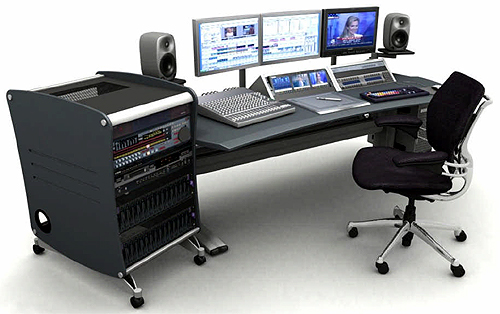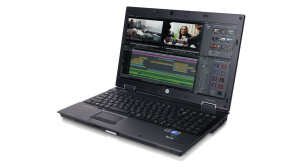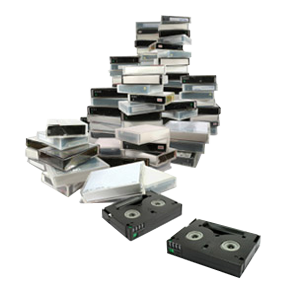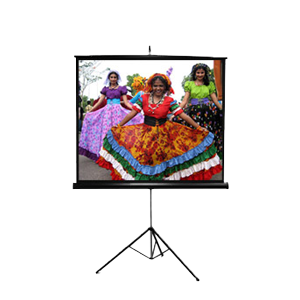With video editing, you have a couple of different options for your workstations. There are several advantages and disadvantages depending on what kind of system you plan to use for your project. Typically, you’d either be working on a desktop computer, or a laptop computer. However, recently, tablets and other mobile platforms have begun to support video editing software and apps.

Desktop Computer Desktop computers have a variety of advantages when it comes to editing video. For one, they have the ability to hold multiple hard drives within the system. Standard definition video in AVI runs about 13gb per hour of video. As you can see, with multiple hours of footage from a video to hard drive transfer, you’ll need quite a bit of hard drive space to accommodate it all. When working with high-definition footage, the amount of space you’ll need gets even larger! With the advantage of multiple hard drive bays, you have the ability to swap out or add additional hard drives to your system with little to no modification. Another distinct advantage of the desktop computer is the ability to swap out not only hard drives, but other critical components such as your processor, RAM, motherboard, or graphics/video card. Upgrading any of these components can dramatically increase your computer’s overall performance. With a desktop editing system, you’ll typically have more space to work with. Your keyboard and mouse are at a good distance, and you can hook your computer up to one or more monitors to help with multi-tasking or editing multiple different things at once.  Laptop/Mobile computer Laptops and mobile computers come with their own advantages and disadvantages over desktop computers. One of the main reasons people opt to purchase a laptop over a desktop computer is because they have a need for mobility. With a laptop, you can easily pack it up into a briefcase and work from wherever you’d like. The addition of a battery makes it so that you can finish your work where there is no immediate power source. However, the advantage of mobility brings forth a host of additional problems and disadvantages when it comes to video editing. Another disadvantage of the laptop is the price. A laptop with comparable specs to a desktop computer will usually be higher in price. This is because of the smaller form circuitry and electronics, and the fact that laptops come equipped with a screen. Although laptop prices have dropped slightly in the last few years, it’s still very tough to find a laptop for the same price as a desktop with the same specs. Due to the mobile nature of laptops, they are difficult swap out or upgrade any of the components because the form factor is so small. This can be problematic if you need a new processor or video card to handle your editing work. Also, laptops typically come equipped with only a single hard drive. This can be an issue if you’re working with high def video or raw video files that take up enormous amounts of data. Although you can purchase external hard drives, if they are not equipped with either e-SATA or USB 3.0, you’ll be spending may more time than you need just transferring data back and forth.
Laptop/Mobile computer Laptops and mobile computers come with their own advantages and disadvantages over desktop computers. One of the main reasons people opt to purchase a laptop over a desktop computer is because they have a need for mobility. With a laptop, you can easily pack it up into a briefcase and work from wherever you’d like. The addition of a battery makes it so that you can finish your work where there is no immediate power source. However, the advantage of mobility brings forth a host of additional problems and disadvantages when it comes to video editing. Another disadvantage of the laptop is the price. A laptop with comparable specs to a desktop computer will usually be higher in price. This is because of the smaller form circuitry and electronics, and the fact that laptops come equipped with a screen. Although laptop prices have dropped slightly in the last few years, it’s still very tough to find a laptop for the same price as a desktop with the same specs. Due to the mobile nature of laptops, they are difficult swap out or upgrade any of the components because the form factor is so small. This can be problematic if you need a new processor or video card to handle your editing work. Also, laptops typically come equipped with only a single hard drive. This can be an issue if you’re working with high def video or raw video files that take up enormous amounts of data. Although you can purchase external hard drives, if they are not equipped with either e-SATA or USB 3.0, you’ll be spending may more time than you need just transferring data back and forth.









